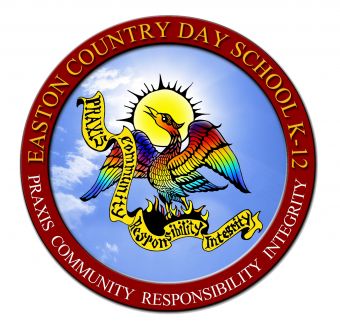- Education Topics
- Achievement Gap
- Alternative Education
- American Education Awards
- Assessment & Evaluation
- Education during COVID-19
- Education Economics
- Education Environment
- Education in the United States during COVID-19
- Education Issues
- Education Policy
- Education Psychology
- Education Scandals and Controversies
- Education Reform
- Education Theory
- Education Worldwide
- Educational Leadership
- Educational Philosophy
- Educational Research
- Educational Technology
- Federal Education Legislation
- Higher Education Worldwide
- Homeless Education
- Homeschooling in the United States
- Migrant Education
- Neglected/Deliquent Students
- Pedagogy
- Sociology of Education
- Special Needs
- National Directories
- After School Programs
- Alternative Schools
- The Arts
- At-Risk Students
- Camps
- Camp Services
- Colleges & Universities
- Counties
- Driving Schools
- Educational Businesses
- Financial Aid
- Higher Education
- International Programs
- Jewish Community Centers
- K-12 Schools
- Language Studies
- Libraries
- Organizations
- Preschools
- Professional Development
- Prom Services
- School Assemblies
- School Districts
- School Field Trips
- School Health
- School Supplies
- School Travel
- School Vendors
- Schools Worldwide
- Special Education
- Special Needs
- Study Abroad
- Teaching Abroad
- Volunteer Programs
- Youth Sports
- For Schools
- Academic Standards
- Assembly Programs
- Blue Ribbon Schools Program
- Educational Accreditation
- Educational Television Channels
- Education in the United States
- History of Education in the United States
- Reading Education in the U.S.
- School Grades
- School Meal Programs
- School Types
- School Uniforms
- Special Education in the United States
- Systems of Formal Education
- U.S. Education Legislation
- For Teachers
- Academic Dishonesty
- Childcare State Licensing Requirements
- Classroom Management
- Education Subjects
- Educational Practices
- Interdisciplinary Teaching
- Job and Interview Tips
- Lesson Plans | Grades
- Professional Development
- State Curriculum Standards
- Substitute Teaching
- Teacher Salary
- Teacher Training Programs
- Teaching Methods
- Training and Certification
- For Students
- Academic Competitions
- Admissions Testing
- At-Risk Students
- Career Planning
- College Admissions
- Drivers License
- Educational Programs
- Educational Television
- High School Dropouts
- Higher Education
- School Health
- Senior Proms
- Sex Education
- Standardized Testing
- Student Financial Aid
- Student Television Stations
- Summer Learning Loss
Easton Country Day School

Basic Information
Address: 660 Morehouse Road, Easton, CT 06612
County: Fairfield, CT
Phone Number: 203 268 5530
Fax Number: 203 268 5863
Email: JodyRoherSmith@aol.com
School Type: Independent
Additional Information
Founded: 1993
Ages/Grades: Pre-K - 12
School Setting:
Set on 10 acres in rural Easton Connecticut.
School Size: 220 students
Classroom Size: 12 - 16 students
Student/Teacher Ratio: 5/1
Tuition:
$21,000 K-8, $30,000 gifted, $30,000 High School
Financial Aid:
Available
Curriculum:
Available on website.
Support Services:
We offer Arrowsmith programming, and Cellfield programming.
Summer School: Yes
After School Programs: Yes
Computer Capabilities:
All Students required to have a laptop. All classrooms have Smart Boards.
Uniform Guidelines:
Grades K-8 have uniforms, 9-12 does not
Mission Statement:
Easton Country Day School promotes excellence in academic achievement in the context of our motto “Responsibility, Integrity, Community - Praxis." We cultivate mutual respect and kindness in a multicultural environment where we encourage the development of competent, caring, and responsible citizens.
Philosophy/Belief Statement:
Classes at ECDS are vertically integrated to expose student to new material based on academic preparedness other than just age. An excellent education is not one size fits all. With this in mind, we seek to form the educational process around the child - not the other way around.
Traditional grade levels are, at best, only an approximation of where any given child might actually be in his or her academic growth. Easton Country Day School more accurately designs each individual child’s academic experience by utilizing vertical integration.
Vertical integration allows us to adapt an individual’s academic experience to his strengths and progress. For example, classes such as math are taught at the same time of day to all grade levels. This means that q child who is on pare for his age in most materials, but advanced in math, can simply attend a more advanced math class without being taken out of grade level or having his friendships jeopardized. Likewise, a child who needs to spend more time with grade level math may do so without interfering with his academic progression. These types of adaptations are considered quite ordinary and routine by students and teachers alike.
Tags: talented, stem, Individualized, Gifted, excellence




